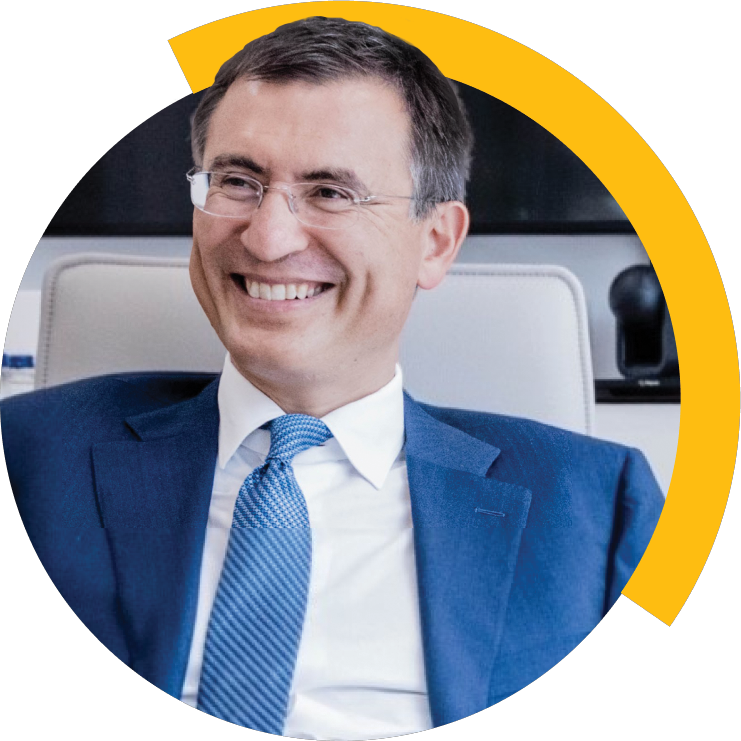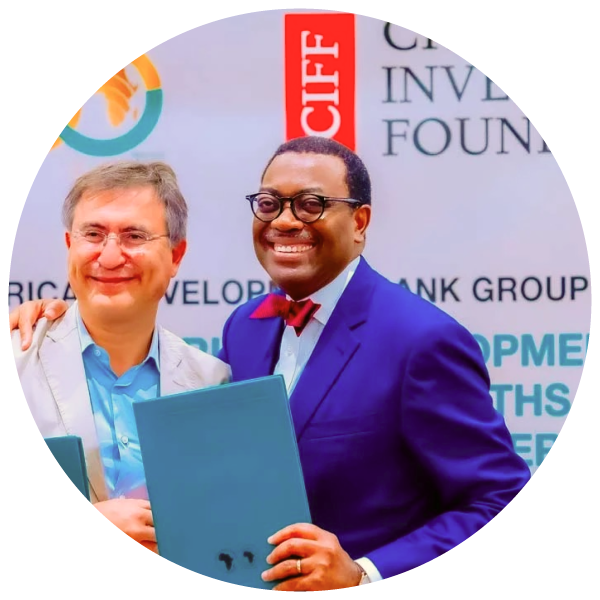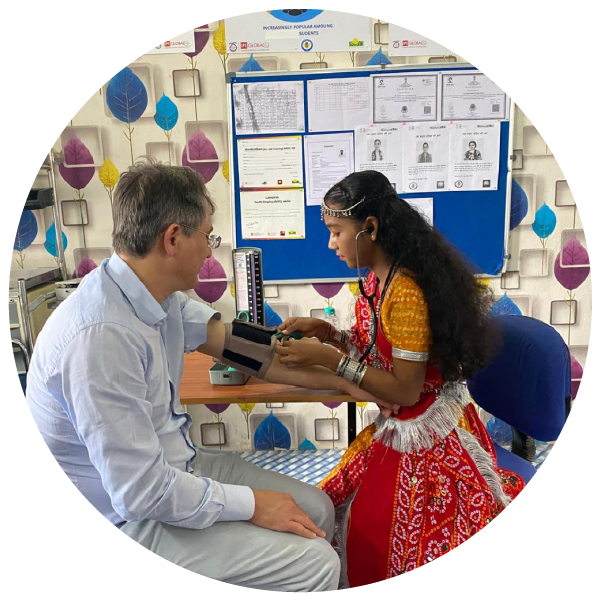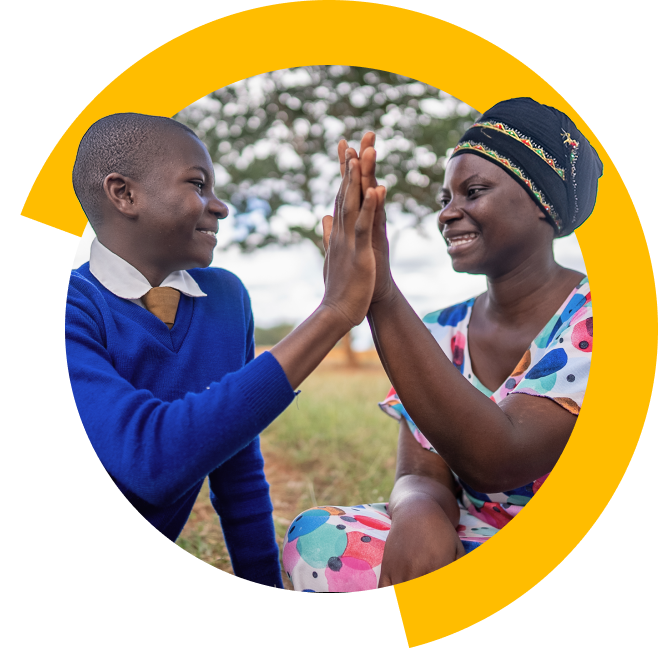Founder’s Message

When I was 20 years old, I met children living in extreme poverty for the first time. Like all children, they were precious – but the circumstances around them, the system they had been born into, had taken opportunities away from them.
At that moment, I made a commitment: if I ever had the resources, I would work to address the barriers that prevent children from living healthy, happy lives. This commitment has driven every aspect of my career.
The current global context, with delivery and funding gaps persisting across all areas of international development, means it is more challenging than ever to reach our collective 2030 goals. Philanthropy is not a silver bullet and cannot fix all the world’s problems; however, in a world where wealth and influence can shape outcomes, those with significant resources must rise to the occasion and use philanthropy to drive meaningful and lasting change. Reflecting on 2024, there are clear examples from our work that illustrate how philanthropy can be most effective...
When speaking to the young people we serve, I am always reminded of the complexity of every issue we work on. Nobody experiences health, nutrition, education, safety, the environment or any other aspect of their life in isolation.
School meals are a great example of this. If children are provided with nutritious school meals, they will be more likely to stay in school, they’ll be healthier and able to learn more – it creates an amazing virtuous circle which impacts every aspect of their lives. But this works best if we can catalyse the system to make school meals the norm. That’s why in 2024 CIFF announced a $100 million partnership with the African Development Bank Group, to unlock sustainable financing for school feeding across Africa alongside governments. (Link to Africa chapter).
The public procurement this provides has the potential to also strengthen agricultural supply chains and thereby improve livelihoods. This is why CIFF’s focus on climate is so important. Agriculture is particularly vulnerable to climate change but our current food and land use system is one of the largest contributors to global emissions and biodiversity loss. To address this, CIFF has been investing in sustainable agriculture and sustainable land use across the world. We are seeing progress, for example Brazil is once again using data and alert systems to control deforestation and is now on track for net zero deforestation by 2030 with a 7% drop in 2024 alone. (Link to Global chapter).

Progress happens at scale and lasts longer when it is led by accountable governments and driven by the priorities of the people of that country. During my recent visit to India, I was struck by the Government's adoption of innovations, driven by supportive policies. CIFF in India has been working with government and partner organisations to pilot and scale innovative programmes that drive tangible, life-changing outcomes.
For example, in Rajasthan, we supported the State Government in bringing advanced digital health diagnostics to remote villages, significantly expanding maternal and child healthcare access. We also collaborated with the Skills Ministry on the Skill Impact Bond which leverages an outcomes-based financing model to ensure that their skilling programme translates into employment for women. The visit left me deeply optimistic about our efforts in India and strengthened my resolve to double down on these successful initiatives with proven results in partnership with government, working to local development priorities (Read more about CIFF’s work in India).

Everything we do at CIFF, we do in partnership with others. “Our” impact is only the collective impact of the governments, the communities and the organisations we work with. The Child Nutrition Fund, a UNICEF-led catalytic financing mechanism is a successful example of multiple partners coming together. Similarly, last year I was proud to announce a $100 million commitment in new funding to the WISH dividend Platform which will support countries to reach or surpass their national Family Planning 2030 targets. Working in partnership with the FCDO, this will enable over 7.7 million women and girls to access their family planning method of choice.
Partnership is critical in absolutely everything we do - whether it’s our collaboration with Climate Lead to inspire other philanthropic leaders to take climate action around the world or our renewed commitment to the European Climate Foundation – which has enabled deep collaboration across governments, civil society and the public at large.
For every challenge we face, there is an opportunity to build a better world for children. But we cannot be complacent - we must act with urgency to ensure that every moment, every dollar and every human being matters. That's why in 2024, I personally committed to donate an additional $328 million in funding to CIFF, for specific programmes.
As CIFF continues to scale its level of philanthropic giving, finding opportunities to improve the lives of children continues to be the guiding rationale behind all our work. I would like to thank CIFF’s Board of Trustees and all CIFF staff and partners for their work delivering our shared vision for a safe, healthy and fair world, as we move forward in this challenging time.
